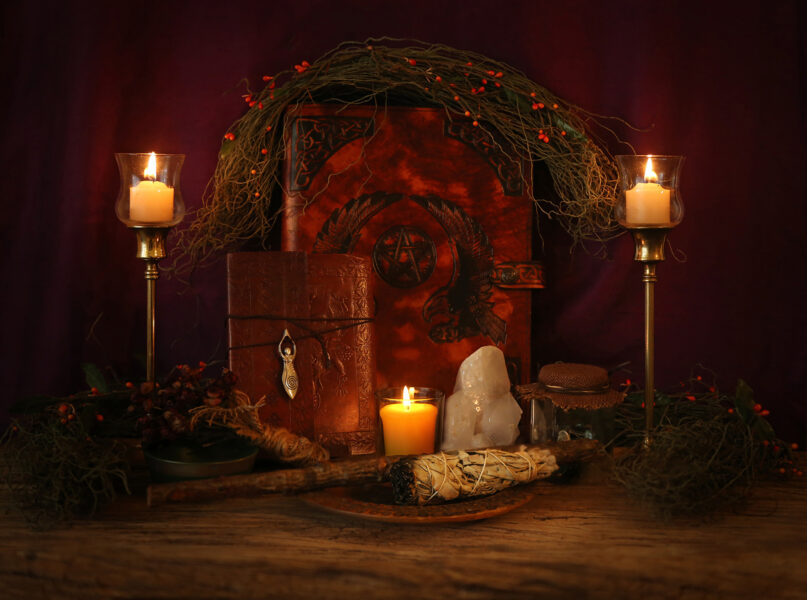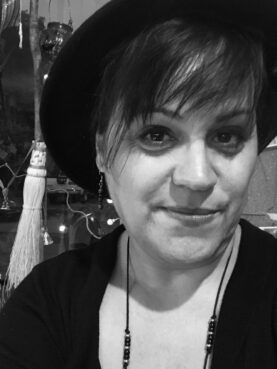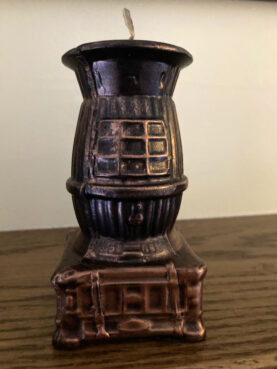(RNS) — Brigid means many things to many people.
To Catholics, she’s St. Brigid of Kildare, one of the patron saints of Ireland. To voudoun practitioners, she’s Maman Brigitte.
To Wiccans and many other pagans, the popular Celtic deity linked with both the Catholic saint and voudoun loa (or spirit) is often depicted as three different women: the goddesses of poetry, of healing and of the forge. She’s associated with everything from fire to water, fertility to brewing beer.
RELATED: Yule traditions new and old wish good riddance to 2020 at the winter solstice
But as Brigid’s feast at Imbolc approaches Tuesday (Feb. 2), it is her title as goddess of hearth and home that most resonates in the midst of pandemic lockdowns.
“As I approached Imbolc, I realized one of the strongest lessons, at least for me personally, was the strength of hearth and home,” said Lisa Wagoner, a witch devoted to Brigid.
Imbolc marks the time when the ground begins to thaw and the days are noticeably longer.
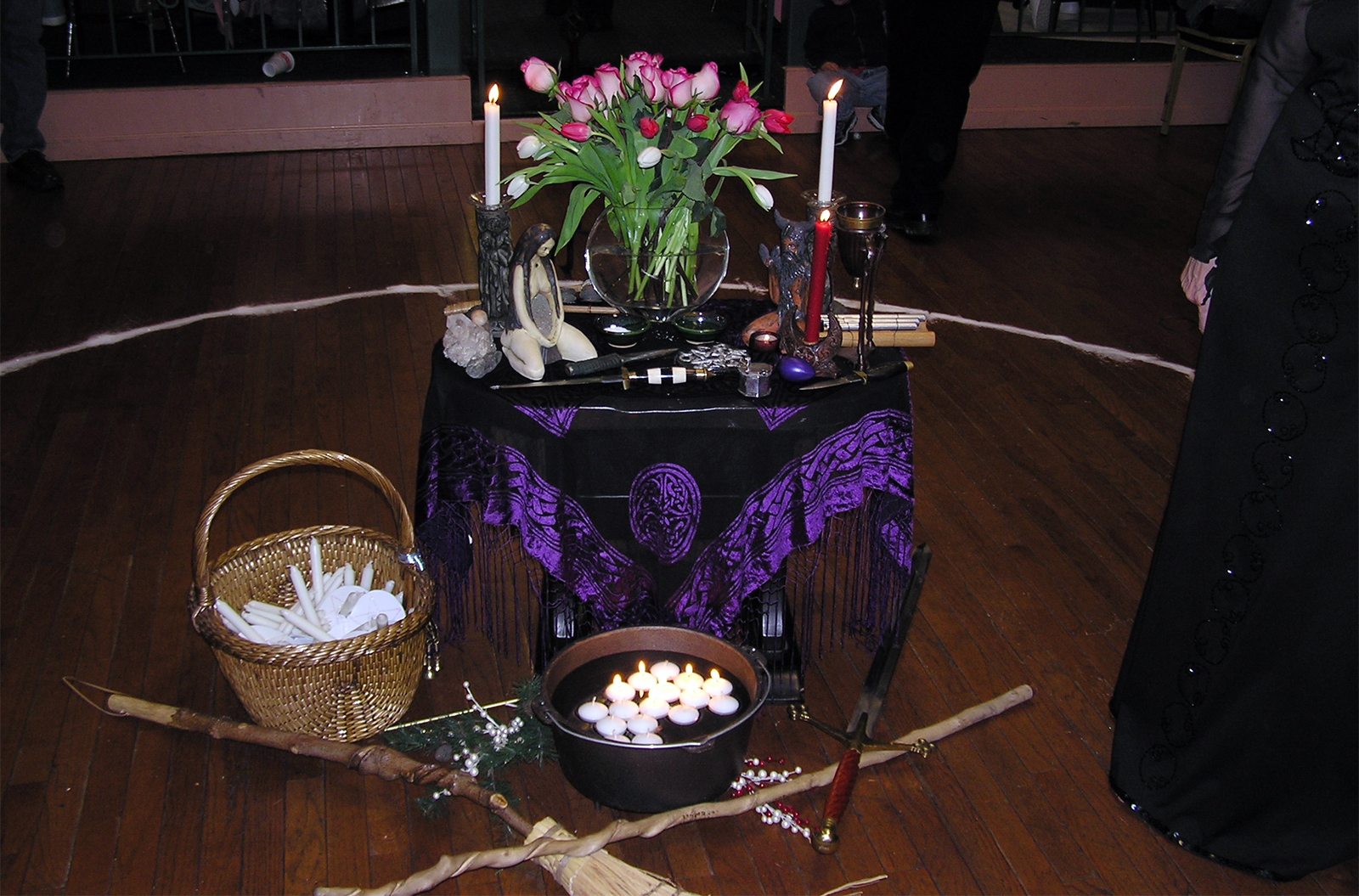
An Imbolc ritual altar. Photo by Rebecca Radcliff/Creative Commons
For many pagans, it’s a time to awaken from a season of introspection, to sort out what one has learned during that time, to begin to make plans for the future, Carl F. Neal wrote in “Imbolc: Rituals, Recipes and Lore for Brigid’s Day.”
Celebrations tend to be more private and focused on family than other sabbats — blessing candles and weaving Brigid’s crosses from straw and other materials, according to Neal.
“In ancient times Imbolc was a reason to celebrate because it finally revealed hope for easier days around the corner. It was a sleepy time of the year in a time when travel and communal activities were more difficult,” he wrote.
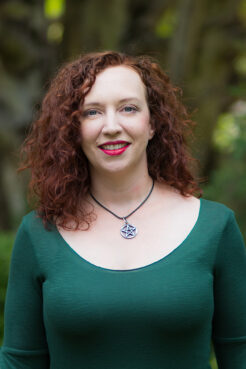
Courtney Weber, author of “Brigid: History, Mystery, and Magick of the Celtic Goddess.” Courtesy photo
Many Imbolc traditions revolve around Brigid, who shares the sabbat’s associations with transformation, inspiration, wisdom, fertility and the hearth fire, among other things.
Historically, Imbolc rituals would have focused on protecting the home, asking Brigid to guard the house from famine and fire, Wiccan priestess Courtney Weber told Religion News Service. Many people still make and hang Brigid’s crosses in the kitchen or near doorways for protection.
“To me, it makes a lot of sense to invoke practices of Imbolc to protect your home right now. We’re all trying to protect ourselves from illness and also trying to protect our mental health. This has been a very, very challenging time for people, so I could certainly see why doing an Imbolc ritual to protect the health and safety of the people within the house makes a lot of sense right now,” said Weber, author of “Brigid: History, Mystery, and Magick of the Celtic Goddess.”
“It’s also logistically a lot more feasible since this is a holiday that has traditionally been about staying close to home,” she added.
She and her husband will be practicing more focused rituals at home this year, she said. She’ll do a ritual cleansing and make her home in Oregon hospitable for Brigid as if she might be having guests in non-pandemic times.
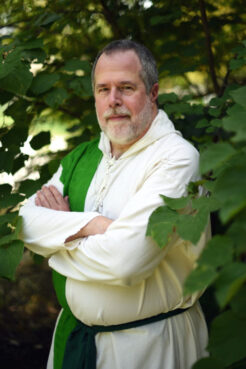
John Beckett. Courtesy photo
For John Beckett, a druid and coordinating officer of the Denton Covenant of Unitarian Universalist Pagans in Texas, Imbolc’s association with purification — a Pagan spring cleaning — resonates at the end of a near-universally difficult year and the previous presidential administration.
While many pagans planned cleansing and banishing rituals for the winter solstice in the final days of 2020, Beckett decided to wait until both the year and the administration would be gone.
He has co-written a ritual of cleansing that Denton CUUPS will lead virtually this weekend. That will involve placing injuries, losses and sorrows from the last year into an object and then sending it away, as well as a blessing for 2021.
“I’m under no delusion that changing either the calendar or the President is going to make everything good, but both give us a chance for a new start,” Beckett said in an email to RNS. “So let’s make it a clean new start, and do a major cleansing ritual at Imbolc.”
Gwyn, one of the hosts of the podcast “3 Pagans and a Cat,” blogged last week that the bleak Michigan winter made it difficult to celebrate spring around the corner.
But, she wrote, “I can get behind the celebration of hearth and home.”
Instead of her usual spring cleaning, Gwyn wrote, she is focusing this Imbolc on bringing a sense of warmth into her home. That includes tending to houseplants, a popular pandemic pastime. It also includes making comfort food like grilled cheese sandwiches and filling her home with soothing scents.
Wagoner, too, is leaning into Imbolc and Brigid’s association with hearth and home, something she said hadn’t struck her before this pandemic year.
In the past 11 months, she has been baking breads and making jams and scrubs, things she said she hadn’t done in years. She has been getting by with what she has, rather than running out to the store every time an item crosses her mind.
She has felt a deeper connection with home — her roots deeper, her resiliency and resolve stronger.
- Lisa Wagoner. Courtesy photo
- A candle shaped like a potbelly stove. Photo courtesy of Lisa Wagoner
Now, Wagoner blogged, “As we face Imbolc this year, I feel that this celebration has more depth and meaning than ever before.”
“Home and hearth have become even more important to me in these pandemic times. It is safety and refuge, a place to be truly myself, and a place to share my love with others in my household.”
RELATED: Mexico’s Fiesta de la Candelaria ends Christmas with a bang
Wagoner will be cleaning out her junk drawers and working in her garden in North Carolina, she said. She’ll light a candle shaped like a potbelly stove made by a friend’s candle shop that she has set on her ritual altar.
Across the globe, the Brigidine Sisters in Kildare will continue to tend Brigid’s Perpetual Flame, she noted.
“It’s the small, simple acts, and that resonates so much, especially when the world seems so chaotic. It’s very stabilizing, and it’s very centering,” Wagoner said.
